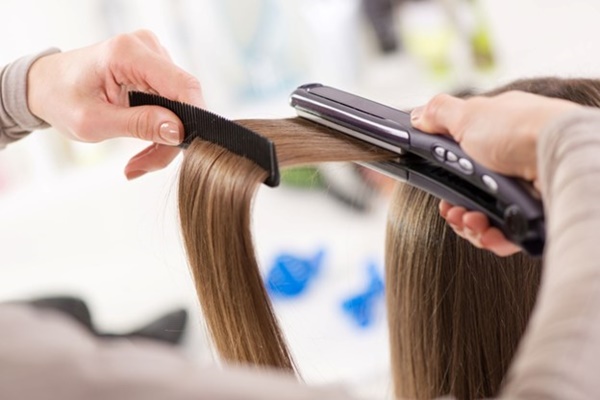Chemical hair straightening, also known as relaxing or texturizing, is a process that involves the application of chemical substances to alter the natural texture of hair. The primary aim of this process is to make hair straighter, smoother, and more manageable. However, as with any chemical treatment, there are potential risks associated with the use of chemical hair straightening products. In this article, we will delve into 7 facts and statistics about chemical hair straightening that are crucial for individuals to be aware of before undergoing this treatment.
Types of Chemical Hair Straightening
There are two types of chemical hair straightening, lye-based and no-lye based. Lye-based relaxers are stronger and require more maintenance, while no-lye relaxers are less harsh and can be used on color-treated or previously relaxed hair.
Chemical Hair Straightening can be Harmful
Chemical hair straightening products, also known as relaxers, contain strong chemicals such as sodium hydroxide or lithium hydroxide that can cause damage to the hair and scalp if not used properly. Hair straightening products have been found to contain endocrine-disrupting chemicals, which can have negative effects on the body's hormone levels and can even cause cancer. For cancer caused by hair products, you can take legal action by filing a lawsuit.
FDA Recommendation
In the United States, chemical hair straightening products are regulated by the Food and Drug Administration (FDA) as cosmetics. The FDA recommends that consumers patch-test the product on a small area of skin before using it to check for potential allergic reactions.
License and Training
Many states have laws in place that require hair stylists and cosmetologists to be licensed and trained in the use of chemical hair straightening products. Hair straightener is a chemical, and like all toxic substances, proper equipment and training are necessary to use them.
Class Action Lawsuits
In addition to filing an individual lawsuit, an affected person can also be a part of a class action lawsuit in chemical hair straightening cases. Over the past 5 years, the frequency of such lawsuits has snowballed as more people are now aware of or, unfortunately affected by the situation.
OSHA Guidelines
In the United States, the Occupational Safety and Health Administration (OSHA) has established guidelines for the safe use of chemicals in the workplace, including chemical hair straightening products. Failure to follow these guidelines can not only bring a lawsuit against the manufacturer but the salon or other facility using the product without proper safety procedures.
Popular Choice
According to a study published in the Journal of the American Academy of Dermatology, chemical hair straightening is the most common hair treatment sought after by African American women. Specifically, the study revealed that 37% of African American women reported using chemical hair straightening products, in comparison to 14% of Caucasian women who reported using these products.
Risk of Developing Cancer
Some studies have shown that long-term exposure to chemicals used in hair straightening products may increase the risk of certain types of cancer, such as leukemia and lymphoma.
Chemical hair straightening can provide individuals with straighter, smoother, and more manageable hair. However, it is important to be aware of the potential risks and to only undergo the treatment under the guidance of a trained professional. Additionally, it is crucial to consider the long-term effects and potential damage that may be caused by the use of chemical hair straightening products. It's worth noting that laws and regulations may vary across states and countries, and it's important to check the local laws before using or selling chemical hair straightening products. Additionally, it's crucial to follow the instructions and safety precautions provided by the manufacturer and seek professional help if you have any doubts or concerns.








No comments
Post a Comment